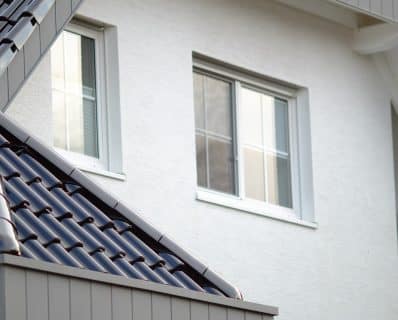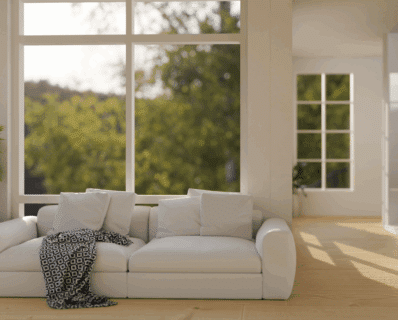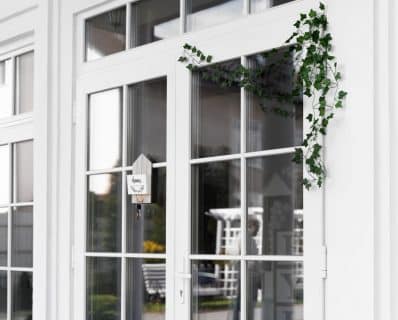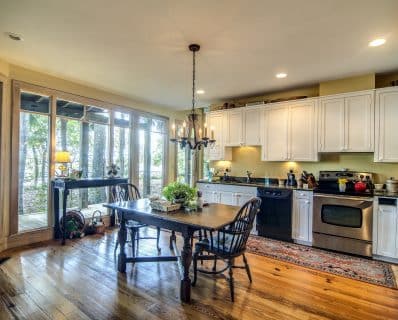Is Window for Basement Obligatory?

Windows are not just apertures for light and ventilation but are paramount for safety and regulation compliance. They serve as essential egress windows, acting as an escape route during emergencies, particularly in a space like a basement, where alternate exits might be scarce or non-existent. Furthermore, natural light and adequate ventilation are pivotal in converting a basement from a mere storage space to a livable, waterproofed and breathable area, enhancing the aesthetic and functional utility of the space with the help of window for basement.
Contents
- 1 Top 5 Signs It’s Time to Replace Your Basement Windows
- 2 Comprehending the Legal Framework
- 3 Unlocking the Architectural and Design Potential
- 4 Best Window Types for Basement Window Replacement
- 5 The Environmental and Energy Efficacy Angle
- 6 Challenges and Solutions
- 7 Leveraging Windows for Value Augmentation
- 8 Ensuring Seamless Window Installation
- 9 Conclusion
Top 5 Signs It’s Time to Replace Your Basement Windows
The very essence of a sturdy, welcoming, and safe home often lies in the meticulous attention to its components, with windows being one of the pivotal elements that demand timely inspection and maintenance. Discerning the opportune moment for replacement is crucial, especially when considering window for basement, which not only assure an aesthetic appeal but also embody the principles of safety and efficient energy use.
#1. Persistent Moisture and Water Damage
The perennial presence of moisture, condensation, or evident water damage on or around your basement windows indicates a pressing need for replacement. Not only can persistent moisture lead to mould and mildew formation, but it can also cause structural damage to the window frames and adjacent walls, compromising the living space’s safety and hygiene.
#2. Noticeable Drafts and Fluctuating Temperatures
When your basement becomes susceptible to unexpected drafts and erratic temperature fluctuations, it’s often a telltale sign of deteriorating window sealant or structural integrity. Efficient windows act as a barrier to external weather conditions, and any deviation from this functionality warrants immediate attention and probable replacement.
#3. Compromised Security
Any windows that do not shut properly have damaged locks or show signs of structural weakness that adversely impact the security of your home. Basement windows, mainly, should be robust and secure to protect against potential intrusions and ensure the overall safety of the dwelling and its occupants.
#4. Decaying Frames and Panes
Upon observing the decaying, warping, or deteriorating window frames and panes, the alarm bells for replacement should promptly ring. Not only do decaying windows diminish the aesthetic appeal of your basement, but they also fail to optimally perform their fundamental functions of insulation, security, and light facilitation. They were made from wood throughout the history of windows, but now the most popular options are UPVC and vinyl windows.
#5. Suboptimal Energy Efficiency
When you discern a spike in your energy bills without a corresponding increase in usage, suboptimal windows may be the culprits. Modern windows are energy-efficient, keeping your space insulated and reducing the dependency on artificial heating and cooling systems. If your windows are failing in this regard, contemplating replacement with more energy-efficient models is prudent.
Recognizing these signs and initiating timely replacement of basement windows is not merely a strategic move towards maintaining an aesthetic appeal but is an investment in the home’s prolonged safety, efficiency, and value. Engaging with professionals who can guide you through the selection and installation process ensures that the new windows not only rectify the issues identified but also harmoniously blend with the structural and design ethos of the space.
Comprehending the Legal Framework
The International Residential Code (IRC) stipulates that any basement bedroom must have at least one egress window. This is not a mere recommendation but a legal requisite of window for basement, steering homeowners towards ensuring safety and adhering to standardized construction norms. The dimensions of the egress window must adhere to specific measurements, with a minimum width of opening of 20 inches, a minimum height of opening of 24 inches, and a net clear opening space of 5.7 square feet.
Unlocking the Architectural and Design Potential
Incorporating windows in your basement does not merely tick a regulatory box but unlocks many architectural and design opportunities. Thoughtfully selected and strategically placed windows can metamorphose a basement from a dark, underutilized space to a vibrant, light-filled area that holds the potential to serve various functional purposes, be it a recreational room, guest bedroom, or a cozy home office.
Best Window Types for Basement Window Replacement
The architecture of a home is paramount, and selecting a window that synergizes with your space’s functional and visual aspects is integral.
Awning Windows
Awning windows embrace a design that is aesthetically pleasing and remarkably functional, especially in basement settings. Characterized by a top-hinged operation, these windows open outward, paving the way for optimal ventilation without permitting debris, rain, or other external elements into the basement. Noteworthy features include:
- Effective ventilation allows for ample airflow, ushering in freshness and negating stagnancy within the basement;
- The outward opening shields against external elements, ensuring the interior remains untouched by inclement weather and enhancing protection;
- Positioned higher on walls, they illuminate the space with natural light while maintaining privacy.
Casement Windows
Casement windows, with their side-hinged design and ability to open outward, stand as a testament to a seamless amalgamation of elegance and practical functionality. Particularly applicable for basement scenarios where maximization of light and air is pivotal, casement windows present several compelling aspects:
- The design facilitates the ushering in of a breezy atmosphere, mitigating any tendencies towards dampness or stuffiness and maximizing the airflow;
- Offering unobstructed views, casement windows can illuminate and visually expand basement spaces;
- Often coming with tight seals, these windows significantly curtail energy loss, promoting a sustainable living environment.
Sliding Windows
Sliding windows embark on a journey that introduces homeowners to modern, sleek, and operationally simplistic window design, particularly conducive for basement environments. Such windows provide easy-to-operate functionality and a minimalistic aesthetic when moving horizontally along a track. Key advantages encompass:
- Their smooth tracking systems, enable effortless opening and closing, ensuring usability for all ages;
- Without the need for outward space to open, these windows are apt for basements with external obstructions or limited space;
- Often more economically viable, sliding windows provide a budget-friendly option without compromising aesthetic or functional quality.
The choice between them is less about hierarchical superiority and more about contextual applicability, ensuring that the selected window type harmonizes with the functional and aesthetic narrative of the space it is destined for.
The Environmental and Energy Efficacy Angle
In the epoch of sustainable living, considering our architectural choices’ environmental and energy impact is not just conscientious but often economically beneficial. Windows, particularly energy-efficient models, can regulate the basement’s temperature, ensuring it remains cool in the summer and warm in the winter, thereby reducing reliance on artificial heating and cooling systems. This lessens the environmental impact and curtails energy expenses in the long run.
Challenges and Solutions
Addressing valid concerns regarding privacy and security, which often surface when discussing basement windows, is vital. Opting for windows with built-in blinds or obscure glass can shield the basement from prying eyes without compromising on the inflow of natural light. Simultaneously, window well covers can prevent debris accumulation and deter potential intruders, ensuring that functionality does not impede security.
Leveraging Windows for Value Augmentation
Intelligently incorporated and aesthetically appealing windows not only enhance the usability of a basement but can significantly augment the property value. Potential buyers often perceive a well-lit, ventilated, and code-compliant basement as an additional living space, elevating the property’s overall appeal and worth.
Ensuring Seamless Window Installation
Enlisting the aid of the HTR professional window installers is imperative to ensure that the installation is seamless, code-compliant, and does not compromise the structural integrity of the basement. Professionals bring expertise and precision and provide valuable insights into selecting the right window type, ensuring that it harmoniously blends functionality with aesthetic appeal.
Conclusion
While basement windows are often obligatory due to safety regulations and legal stipulations, their incorporation extends beyond mere compliance. They invite light, exude warmth, ensure safety, and unlock the basement’s additional functional and aesthetic potential, inevitably leading to enhanced living quality and property value augmentation. Next time you think of windows replacement and installation in Toronto, look at your basement windows. Maybe it’s time to make your foundation a living space.













